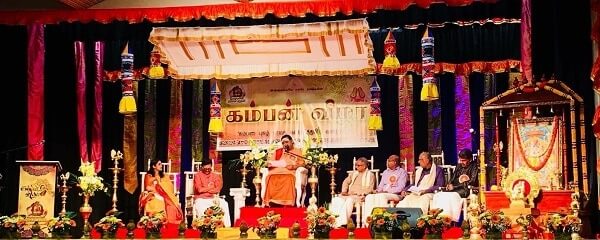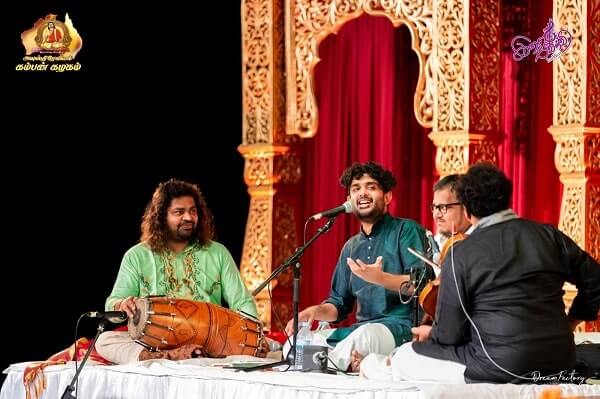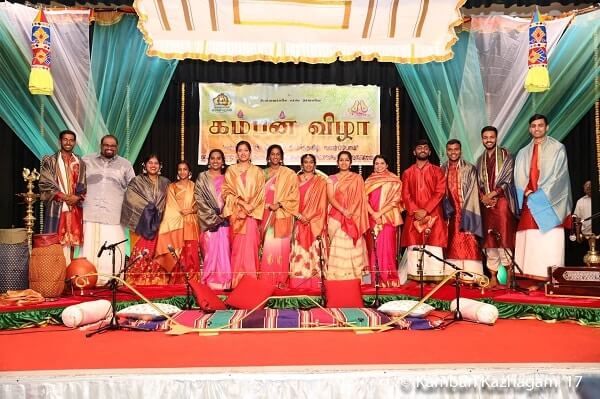The Sydney-based organisation Kamban Kazhagam, dedicated to the study and proliferation of the Tamil language in this country, recently marked the 15th anniversary of its foundation.
Not only is Tamil one of 22 scheduled languages in the Constitution of India, it is also an official language of Sri Lanka and Singapore, as well as of the Indian states Tamil Nadu and Puducherry. Tamil is the only language apart from Sanskrit that has an equally rich and long literary history: not only was Tamil first declared as a classical language of India, the variety and richness of classical Tamil literature has led to it being described as “one of the great classical traditions and literatures of the world.” More recently, books by western authors such as David Shulman and George Hart have highlighted Tamil’s great contribution to world civilisation.
It is not surprising, therefore that Tamil people take the passion for their language with them wherever they go. Kamban Kazhagam in Sydney is precisely the sort of organisation that was born out of this passion for the Tamil language.
Its Founder and Chairperson Jeiram Jegatheesan, a project manager in his daytime job, told Indian Link, “As Tamil settlers here, we felt a certain lacuna, an absence of focus on Tamil literature, and the teaching of values as enshrined in such magnum opuses as Tirukkural and the Ramayana of Kamban.”
Kamban’s 12,000-verse Iramavataram – dated between the 9th and 12th centuries – was the first Ramayana written in a vernacular language.
“At the Kazhagam, we began promoting Tamil literature through our annual flagship event Kamban Vizha, and soon grew from a modest literary event with which we began in 2006, to a full-fledged multi-day literary festival, attracting scholars from India and Sri Lanka.”
To take Tamil literature to the next generation, as part of the school curriculum particularly, was a natural next step.
There are several Tamil language schools that have been doing stellar work in preserving and promoting Tamil. Their influence can be seen in the growth of Tamil language learning across NSW. Since 2001, Tamil has been offered as a language in HSC, and on average, between 30 and 40 students sit for Tamil language exams every year.
READ ALSO: Tamil Nadu CM announces welfare board for Tamil diaspora

However, once the students finish school, there aren’t enough opportunities for them to study or develop the language further. Kamban Kazhagam wanted to address this hiatus, and began teaching students in the 15+ age cohort in 2013.
“This was enthusiastically received, so it prompted us to ask the question, why don’t we begin classes for younger kids too?” Jegatheesan recounted.
In 2015, classes were instituted for a younger cohort on Friday evenings, and for senior students on Sunday.
Some parents reached out and requested Intermediate Tamil – and this was begun in 2019.
Senior students have held debates during Literary Festivals, and performed a Tamil play every year, scripted entirely by themselves, Jegatheesan described.
All of the Kazhagam’s activities are run by volunteers, he added.
Once the activities of the Kazhagam grew and expanded, the organisers added more events to their calendar, and in the true spirit of muththamizh (the three expressions of Tamil) adding the isai and natakam (music and dramatic arts) to Iyal (literature). Since 2008 they have invited renowned musicians and dancers from India perform in their events.

The Kazhagam is aware of some of the challenges and opportunities ahead for the organisation: the 2016 census estimated the Tamil population in Australia at 75,000. Yet, the audiences in many of its events, especially the literary ones, consist largely of older people.
“We are keen to get more younger people involved and are trialling various modes,” Jegatheesan revealed.
They began conducting online forums from 2020, teaching Kamba Ramayana to younger people. This year the Kamban Vizha will be held over 3 days at the Redgum Function Centre with the active involvement of younger people, and will be streamed live on YouTube and Facebook; several well-known scholars are expected to attend.
Kamban Kazhagam is trying to spread its wings further afield and since 2012 have even held three Vizhas in Melbourne. Most of their funding comes from sponsors and well-wishers.
Learn more about Kamban Kazhagam here.
READ ALSO: ‘Stories of Kannagi’: a Tamil classic in the Blake Art Prize





